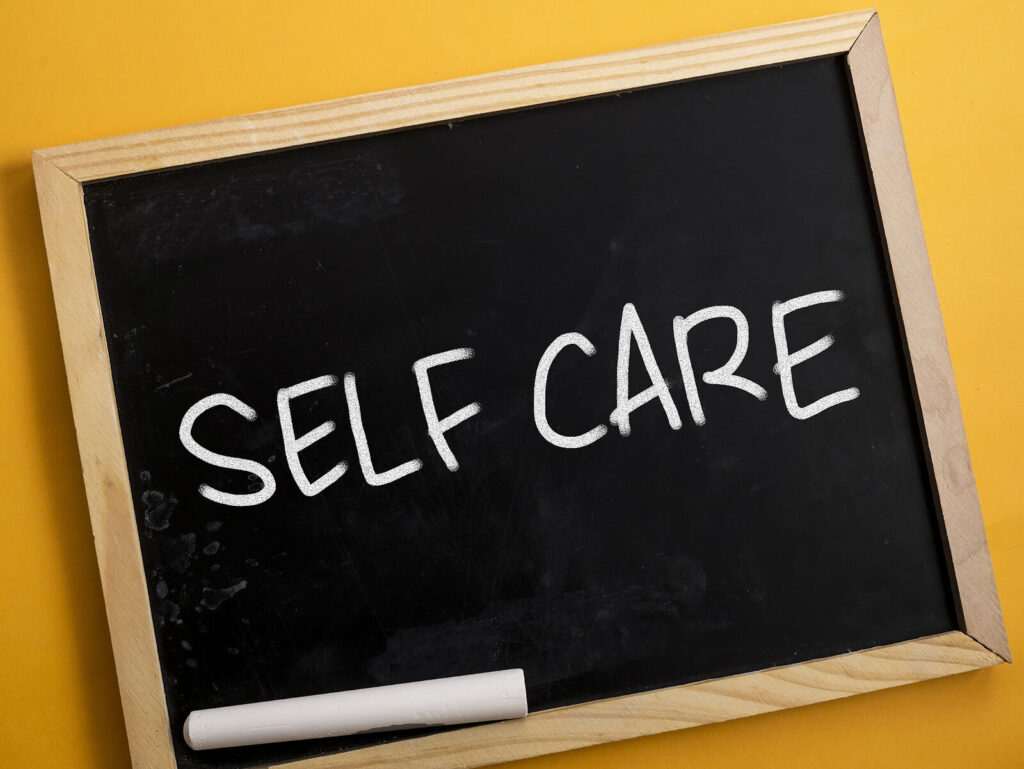Self-Care, Authenticity, and Boundaries

During our last blog, we talked about the development of emotionally immature parents and the impact it has on their children. This time we are addressing self-care, boundaries, and developing authenticity.
Due to the impact that emotionally immature parents’ actions have on kids, it leads to these individuals as children and adults struggle to develop good and consistent self-care. This is because on an emotional level these individuals have been trained to believe their goodness, their worth, and their love ability comes from their ability to sense the needs of other people AND put them first. Sometimes people think that it’s a moral of theirs or that it could be selfish to put themselves first. This can be very destructive and cause the child to believe they are bad otherwise.
As a result, these individuals become prematurely sensitive to reading other people in various situations. For example, this could be worrying about how something is going to affect somebody in the family or being very careful about self-monitoring self-editing self-censoring because they know how that’s going to affect the parent.
How does their thought pattern differ from a healthy sense of self-care?
These individuals, struggle to attend to their basic needs in terms of self-care. Instead, it has manifested in a basic survival instinct. Individuals find themselves needing to be alert, to the emotional status of parents. Therefore, for the kid to reduce their anxiety or fear for their parent to be disorganized, the kid is always on alert. This is scary for the child and therefore, they learn to put the parents first. They also learn that to be seen as “good”, means being self-sacrificing. To take that one step further, the kid learns that being good means “don’t set boundaries and limits”.
Dr. Lindsay Gibson marks that her core reason for creating her book was based on being exploited by emotionally immature people who believe you should be self-sacrificing and attentive to them. Gibson’s goal is for people to get the idea that they have been kind of brainwashed out of their emotional self-protection and out of their instincts for their self-care. The truth is on some level, people can tell inside at a feeling level if something is not right for them. Essentially, we get a feeling of dread.
Additionally…
When something is not right, we get a feeling of apprehension, we get anxiety. we get joy, we get interested, or we get curiosity. All these things move us toward and away from things that are good or bad for us. But that system gets monkeyed with, by the emotionally immature parent who keeps sticking their finger into that and saying, “wait a minute, you’re supposed to be thinking about me and why didn’t you do this”?
How does this impact the child?
Since the emotionally immature person believes individuals should focus on them, individuals get disconnected from self-knowledge and self-achievement. These are traits that move us toward self-care. Unfortunately, what often alerts us for the need for self-care is an illness or psychological symptom.
What are some of the things that describe what people can do to improve their relationship to their self-care needs?
Start Being Your Authenitc Self by Protecting and Caring for Yourself.
This means talking about being true to yourself and learning how to do this. It’s necessary to realize that you are a real person and you’re allowed to take up space. You’re unique and there needs to be a place for you to discover, support, and celebrate this. It is time for you to put your needs and wants into work. This will lead you to build a better relationship with yourself. When you’re able to define your self-concept with actual words. You can begin to understand what feels good and bad.
One way to do this is to be proud of yourself and spend time reflecting on that experience. Often individuals are reluctant to be self-enthusiastic because they feel like they’re being, you know, self-centered or grandiose or conceited or whatever. These are all things that an emotionally immature parent might call the child. But we have joy about being ourselves. That’s means when you’re by yourself and you’re in your element, you feel joy because you have a reunion with your true nature. With this comes pride, joy, and positive energy.
What is Mistaken Identity?
Let’s think about what mistaken identity is. This is when you’re led to believe that you have a certain identity in the family. One that isn’t true. The problem with this is that it was placed on you, not chosen. Therefore, when you’re not in that identity, even though it is not who you are, you feel bad. One client who is a 70-year-old woman recalls, after piecing together her life, realizing that she was intellectually gifted. The issue was that her family never allowed her to actualize this throughout her life. This is a place where we can take time to consider who we are outside of the view of our family. You may have ignored, avoided, and internalized a narrative or an identity that isn’t yours to avoid mockery or ridicule.
Trauma therapy Offers Space for Being Your Authentic Self & Self-discovery
This is where the power of trauma therapy shines through. This is a safe space where a person can recognize and reflect on true strengths. The truth is that our families are powerful and place us into roles. That is just how the family system works. It can impact us before we are consciously aware. What we know about people who come into therapy is that parents often project their stuff onto their children. Children of these emotionally immature parents have never even considered setting boundaries because of the expectations of their identity and role within the family.
So that means individuals pursue careers, interests, and education that their parents find interesting. They are doing what their parents want, and they never take time to slow down and consider what it is that they want. It’s more common now that individuals are paving the way for themselves outside of their parent’s opinions. However, even with the power of choice many individuals still manage to be persuaded by the parents telling them what they should want. This happens throughout their life and then one day, they wake up and realize that they are not happy.
What is a hurt inner world? How does it affect being your authentic self?

As a way to recover your identity and start being your authentic self, I encourage you to honor your inner world. What we have found with emotionally immature parents, is that they are often hostile to the child’s inner world. The inner world is a space for the child to grow, develop, and learn. Instead, the emotionally immature parent ends up mocking and ridiculing the child to the point that there is mistrust of the inner world. What we need to do to heal the inner voice is to listen to how your emotions are there to guide you toward what is going to help you to thrive and flourish. By doing this, we are allowing space for the child to grow. We are attuning to the body to honor what is important to us. That means reflecting on how you don’t want to be a doctor after all. Consider this,
- Is there something else you want to do?
- Deep down, what have you been suppressing?
- Do you need to learn to treat yourself with interest
- Or what does it mean that I’m not enjoying this job?
- Do you need to be interested in why you have a certain reaction?
You may consider what does it mean that I don’t feel like I can say what I truly want to say about what this person does. It means that you’re not comfortable in this situation. That kind of curiosity and interest in the self is, you know, where you get back to finding out how you want your life to be.
We recognize when we are living within our values
We truly recognize and are receptive to when we are living in our truth, feeling alive, and being our authentic selves. The beautiful thing about this is when we recognize that, we remember this. So even if a kid is not able to act on this authentically in youth, they will remember it later in life, they will just need to work to bring it out.
Emotional Safety is Key to Being Your Authentic Self
Although this is easier said than done, we need a sense of emotional safety to act on this. There is calm and comfort that comes from this. However, to assess whether a situation is emotionally safe, you have to be able to understand what is going on with you. This is essential for you. When have you ever been able to feel safe and calm when you’re scared, unaware, and ill equipt for a situation? Likely you didn’t. Often when dealing with difficult people, we feel we don’t have a right to call them out for making us unsafe. What happens is despite the hurt, we feel bad and say oh that person did this, but they are nice. In reality, this person is not and they don’t respect you. What happened was not ok and not nice.
Consider this, if you were friends with someone all your life, and then they shot you in the foot, would you still say they are nice? Probably not, you can’t have both nice and hurt in the same place. People can try to tell us other stories that invalidate our experience, but you don’t need to feel guilty for making a judgment about keeping up a boundary against someone who has been mean to you or has given you the cold shoulder or isn’t kind. Their actions can get in the way of you being able to be your authentic self.
Take Red Riding Hood and The Wolf As A Metaphor
Emotionally immature people often present themselves as the victim. We can consider the story of red riding hood. So the helpless and immature person would be the wolf described as the “helpless grandma”. However, in the end, the wolf ends up being the grandma. In the meantime we find red riding hood getting closer and closer to the granny thinking about how she does not look like the grandma. This is important because red riding hood just stares at the wolf and wills herself not to know it. Instead of calling out the wolf, she comments on all its features.
How this relates to the individuals affected by emotionally immature people is that they are doing this as a self-protective measure. It is to protect them from exploitation and being hurt. In a sense, this is healthy. You want to protect yourself and set boundaries. However, when you do this the emotionally immature individuals make you feel guilty, ashamed, and afraid. Leading you to doubt yourself rather than standing strong in being your authentic self. It’s necessary to see it this way because it starts with one version of thinking. Then turns into brainwashing for these people so they can take advantage of you.
One note about this is that we need to understand what we are moving away from and also what we are moving toward.
How do we want to be friends and have relationships in our life? What feelings do we want to feel? Many individuals have not experienced being treated well, especially adult children of emotionally immature people. Individuals are used to being confused and can’t put their finger on what they have experienced. Since individuals’ minds have gotten muddied with “oh they are so nice”, or “ I know she didn’t mean to”, they are often too used to these rationalizations and attempt to make everything seem ok. Instead, they try to focus on all the times they were nice.
The truth is when we relate it to the red riding hood story. We know she is looking at the wolf and trying to do mental gymnastics to figure out why reality is not presenting itself. So in terms of relationships, this can become difficult to distinguish the real harm from the actual niceness. When people have had relationships with others who have harmed them they can’t identify the harm that took place as being real.
Unfortunately, when these individuals end up getting into a relationship with someone kind to them they almost don’t believe it. They may question “ How do I know if this person will be any different?” As a trauma therapist, you can hear the difference between this relationship and the previous ones. However, for this individual it’s confusing. They have a fear that someone could be secretly unsafe because as they recall the safe ones in the past turned out not to be safe.
This makes you wonder, how you begin to discern this?
When you consider the wolf, you realize that although your mind was trying to tell you the truth, the “wolf” ends up taking you out of the situation or making you feel bad. It can almost seem like we are being unkind because we are seeing the individual as they are. This unfortunately brings up a lot of shame and guilt. This can really mess with your healthy instinct and your chances of being your authentic self. The truth is these individuals need to learn to trust their own instincts again. So if you ask “ why do you look like a wolf”, the answer should be “ They are wearing a wolf costume right now”. It’s important for individuals to feel okay saying this without being talked out of it. Unfortunately, we can miss red flags because of the gaslighting and manipulation. People can become so skilled with these behaviors that we don’t know they are doing this. Thus robbing you of being your authentic self without you even realizing it at first.
Look toward our own inner guidance to start being your authentic self.

We have to build the concept of trusting our own instincts in order to unhook ourselves from where we are. This involves looking within ourselves and asking “ how do I feel around that person”. Consider “ do I look forward to being with them?”. By doing this, we are able to see the world as it is. So knowing not all grannies are nice and not all grannies in a bed are helpless and non-threatening. In other words, if it looks like a wolf and it has teeth and ears, it is a wolf. If we are able to call out what we are seeing as it is, we can also recognize our own power in the situation and not stick around. Look closer at the facts and find out what is truth. Slowly but surely, you will begin to trust yourself again. From there you will discover the power of being your authentic self.
Find a Trauma Therapist Near Me Today to Begin Being Your Authentic Self!
Being your authentic self after dealing with emotionally immature parents and adults can feel difficult. Truly, being here is a great step toward recovery and discovering who you truly are. However, your next best step is to begin talking with a qualified trauma therapist. If you are wondering if you are struggling to be your authentic self because you are an adult child dealing with the after-effects of dealing with emotionally immature parents, talk to a trauma therapist. You can usually speak to them by phone before scheduling an appointment to make sure they feel qualified to help with the issue that affects you.
The first step is understanding that your trauma is real and that it matters. It is possible to feel better and find yourself you just have to take the next step. This is the hard part – trusting a therapist to help you. I know there are many caring and skilled trauma therapists out there who want to help. Find A Trauma Therapist by clicking here.
I hope this blog gives your hope and healing. Please leave questions, comments, or check out our therapy directory.
Wholeheartedly,
Laura Reagan, LCSW-C




